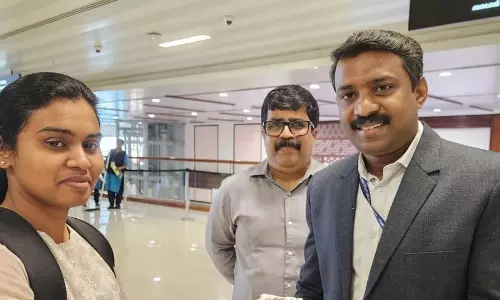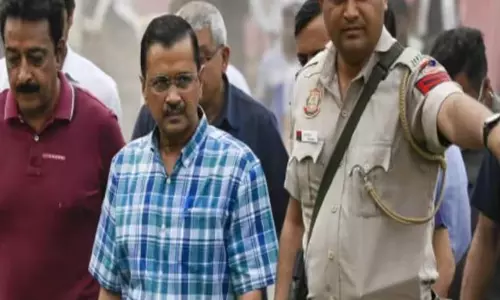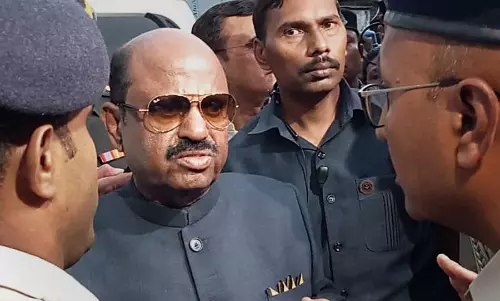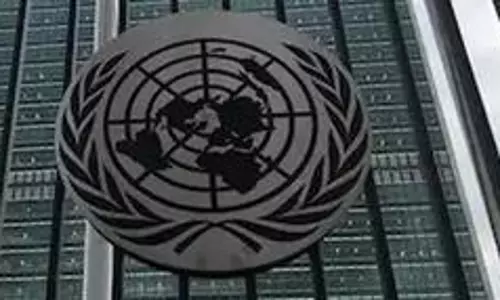
Internet privacy issues echo in Kashmir hearing
text_fieldsSecurity personnel stand near the site of a grenade blast at a market place outside the campus of Kashmir'
New Delhi: The issue connected with Internet privacy echoed in the Supreme Court on Wednesday, as it pondered over the matter that if the government were to read all messages exchanged through various modes of communication then there might not be any privacy.
A bench headed by N.V. Ramana was hearing the submissions of senior advocate Kapil Sibal, representing senior Congress leader Ghulam Nabi Azad, challenging the restrictions imposed on Internet in the Kashmir Valley, which has affected the livelihood of traders and common people.
The Centre has justified the restriction on the Internet citing social media platform being used to serve the interest of a section of people seeking to propagate anti-state sentiments.
Solicitor General Tushar Mehta on Tuesday said that terrorists use social media as a weapon.
The court asked Sibal: "You appear for WhatsApp in some cases, can government ban it in a particular area?
Sibal said that it is a constitutional question, and the messages are end to end encrypted.
"WhatsApp can't see messages, one can only send messages to five at a time," said Sibal.
The court then asked him about various groups on WhatsApp, and would it not end up being used as a platform to send out messages. The bench asked was Sibal saying there should not have been any restriction on Internet at all?
Sibal replied that it was "one to one communication, like a telephone".
The court observed that one to one submission in Internet communication is not correct.
"If I have email id, then I can send to thousand," said a judge on the bench. Mehta said it is one to thousand.
Sibal replied that the goverment can temporarily ban WhatsApp in a given situation, and we have said it should be done.
Justice Ramana then asked whether it could be done technically?
Sibal said China has already done it, and then mentioned about National Technical Research Organisation, a technical intelligence agency under the National Security Advisor in the Prime Minister's Office.
Sibal said: "There are organisation in our country which can read what you do, for instance NTRO which has same mandate as IB."
Justice Ramana said: "So are you saying there is no privacy?"
Sibal replied that there should not be in matters of national security, and insisted platforms like WhatsApp do not compromise privacy.
Earlier, during the hearing the Solicitor General told the apex court that the location of the user id can be camouflaged.
"It can be shown to be anywhere in the world, be it Malaysia or Tanzania." Sibal said on terrorism we are on the side of the establishment, but it cannot be an argument to paralyze lives of seven million people in the region.
Sibal said technology has to be balanced out, and cited the example of nuclear energy, "this technology was used in Hiroshima, but we use for electricity".
He contended that abnormal conditions have been induced through restrictions. Sibal said the submissions on Kashmir is not about the past instead it is about the future, and the state should not muzzle the voice of common people.
Sibal also highlighted instances of misuse of technology. "Morphed images of me and my wife with beef in hand being circulated for last 5 years..... but we cannot do anything about it. Question is can everything be banned because of that?" Said Sibal.





















